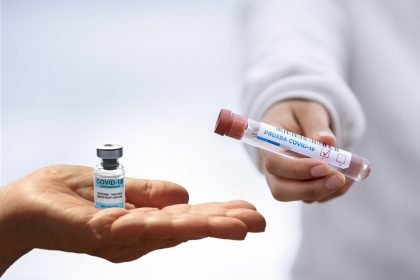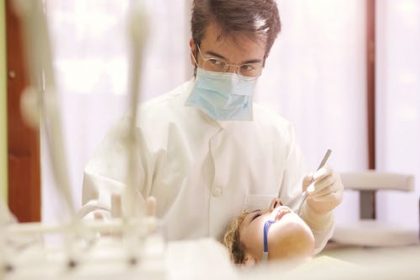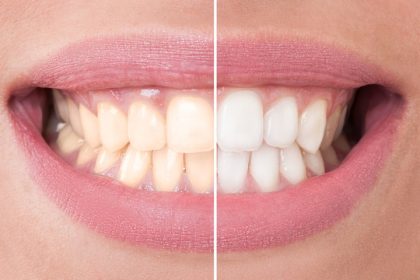Losing a tooth in an accident can be traumatic and shocking. Whether it’s a result of a sports injury, car collision, or a fall, the first instinct is often panic and confusion. However, it’s essential to remain calm and take immediate action to minimize the damage and increase the chances of saving the tooth. Knowing what to do in such a situation can make a significant difference in the long-term health of your oral cavity.
The first step is to assess the severity of the injury and seek medical attention if necessary. Then, taking appropriate measures to handle the lost tooth can increase the possibility of reattachment or successful implantation. Here’s a more detailed explanation of the steps to take if you lose a tooth in an accident:
1. Retrieve the Tooth
Time is critical when dealing with a knocked-out tooth, so try to find the tooth as quickly as possible. Look carefully where the accident occurred, and if you locate the tooth, handle it carefully. Pick it up by the crown (the visible part of the tooth in the mouth) and avoid touching the root to prevent damaging the delicate tissues. You need to get immediate care to retrieve your teeth and ask your dentist for recommendations to address tooth loss.
2. Clean the Tooth
If the tooth is dirty, gently rinse it under cold water to remove debris or dirt. However, do not scrub the tooth or use soap, chemicals, or alcohol, as these can damage the root surface and reduce the chances of successful re-implantation. Keeping the tooth’s root surface as clean and intact as possible is crucial to preserve its viability.
3. Attempt to Reinsert the Tooth (if possible)
If you feel comfortable doing so and the tooth is not broken, try to reinsert it back into its socket immediately. Hold the tooth by the crown and carefully guide it back into place, ensuring it’s facing the right way. Once reinserted, gently bite down on a clean cloth or gauze to hold the tooth in position until you can see a dentist.
4. Keep the Tooth Moist
If you cannot reinsert the tooth, it’s crucial to keep it moist to prevent it from drying out, which can reduce the chances of successful re-implantation. To keep the tooth moist, place it in a container of milk, saline solution, or your saliva. Avoid storing the tooth in water, as this can damage the root cells and decrease the likelihood of successful reattachment.
5. Seek Emergency Dental Care
After securing the tooth and keeping it moist, seek emergency dental care immediately. Call your dentist or go to the nearest emergency room immediately. Many dental offices have provisions for emergency cases and can provide urgent care to address the situation promptly, especially if you require tooth extraction in Columbus, GA.
6. Follow Your Dentist’s Instructions
Once you reach the dentist, they will assess the tooth and determine the best action. Treatment options may include repositioning the tooth, splinting it to adjacent teeth for stabilization, or performing a root canal procedure to save the tooth. Following your dentist’s instructions carefully is essential to maximize the chances of saving the tooth and restoring oral health.
7. Consider Long-Term Options
Depending on the injury’s severity and the tooth’s condition, your dentist may recommend additional treatments or procedures to restore the appearance and function of the affected tooth. These may include dental implants, bridges, or other therapeutic options to replace the lost tooth and prevent further complications.
8. Take Preventive Measures
After receiving treatment for a knocked-out tooth, take preventive measures to protect your remaining teeth from future accidents. This may include wearing a mouthguard during sports or activities that pose a risk of dental injury and practicing good oral hygiene to maintain the health of your teeth and gums.
9. Follow Up with Your Dentist
Schedule follow-up appointments with your dentist to monitor the healing process and ensure the tooth functions properly. Your dentist will provide further guidance on caring for the affected area and maintaining your oral health in the long term. In some cases, general anesthesia for dental procedures may be discussed if extensive work is needed, emphasizing the importance of these follow-up visits.
10. Stay Calm and Seek Support
Experiencing a dental emergency can be stressful and overwhelming, so staying calm and seeking support from friends, family, or mental health professionals is essential. Remember that dental professionals are trained to handle emergencies and are there to help you restore your oral health. By taking prompt action and following your dentist’s instructions, you can increase the likelihood of saving the tooth and minimizing the accident’s impact on oral health.
Wrapping Up
Losing a tooth in an accident can be a distressing experience, but it’s important to remain calm and take immediate action. Seeking medical attention and handling the lost tooth properly can significantly increase the chances of saving it and minimizing long-term oral damage. Contacting a dentist or oral surgeon as soon as possible is crucial, as they can provide expert guidance and potentially reattach the tooth. If the tooth cannot be saved, it’s important to consider options for implants or other dental procedures.





